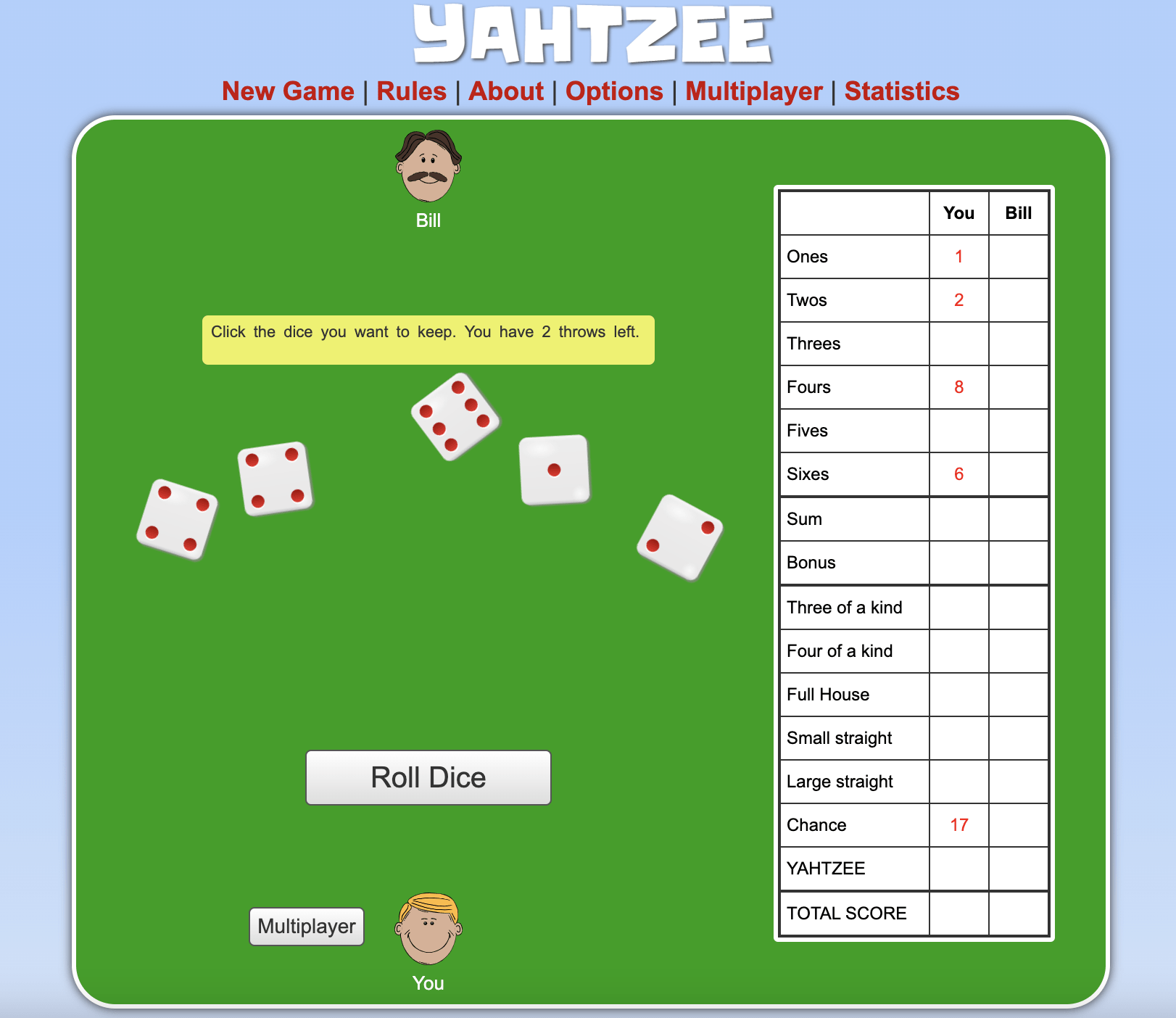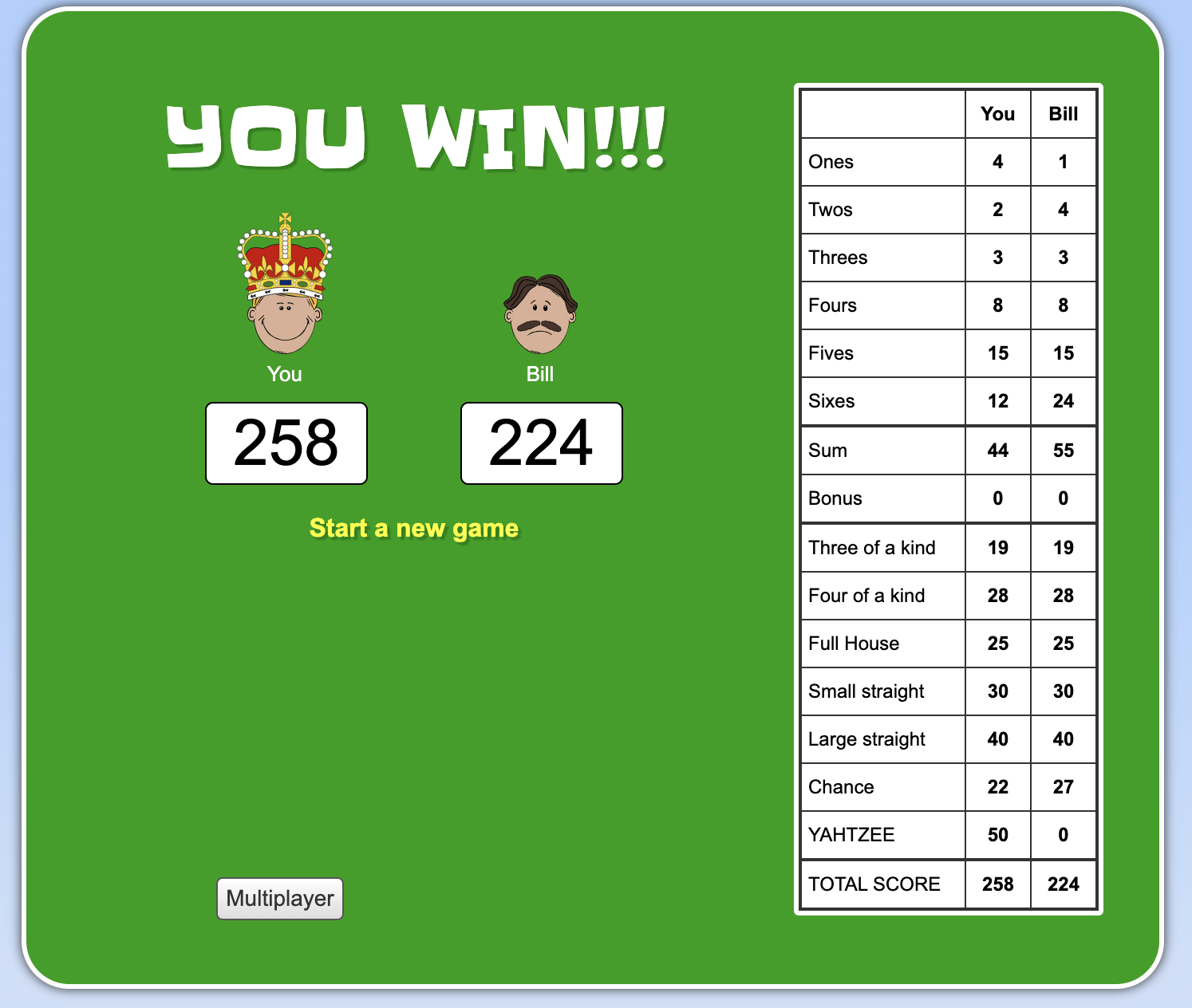
For this week’s critical play, I played Yahtzee (online), trademarked by the Milton Bradley Company in 1956. The age range for this game is 8+, as the core mechanics of the game are quite simple (rolling dice, selecting boxes for your roll to count towards, etc). The fact that you can see your opponent’s score, along with the mechanics of each round create an interesting dynamic. For each subsequent roll, you have a choice of which dice to keep and which to roll again; risks are associated with each choice. The objective is to maximize the number of points across rounds.

My turn, roll 1 of 3
There wasn’t an opportunity to chat with the other player, but Yahtzee is a pretty harmless, family friendly game. Therefore, it is hard to imagine doing well as being part of someone’s identity. Though there are professional Poker players, I have yet to hear of a certified Yahtzee-pro.
Yahtzee promises challenge. Though luck is a large element in this game, there is certainly strategy involved. Depending on the outcome of your first roll, the probability for getting a particular outcome increases. For instance, say you are going for “Four of a kind.” Before rolling, the probability of getting that is small. If after your first roll you’re left with four 3s and you have two rolls left, your probability of getting “Four of a kind” increases significantly, as you need just one 3. There is challenge in determining a strategy that works well with the luck element of this game, and weighing the outcome possibilities before each roll. As intense strategy is not required to enjoy the game, I would say that Yahtzee also fits under submission. I wasn’t calculating the probability of getting a particular box at each roll; I would just take a few seconds to mildly weigh my options. Fellowship would have made this game more exciting. There was no way to communicate with the other player, and there were no sound effects, making the tone evoked from this game quite bland.
Yahtzee introduces near misses — if you have four 4s and are trying to roll a 5th one to get a YAHTZEE (Five of a kind), then if you roll a 3 or a 5 you get a sense that you were “close” to that final 4, even though you are equally likely to roll any number. As discussed in Addiction by Design, these near misses encourage future play. The rush of getting the roll you wanted activates the brain’s reward system powered by dopamine. This sensation could potentially lead to addiction, though it is unlikely as this game is not high stakes (in particular, there is no money involved), which is contrasting to other games of chance (e.g. Poker, BlackJack).

Ending screen
While I don’t usually enjoy games of chance, I liked Yahtzee, as it felt like there was a decent amount of strategy involved to perform well. This strategy aspect is important, and part of what makes other games of chance like Poker so addicting.


